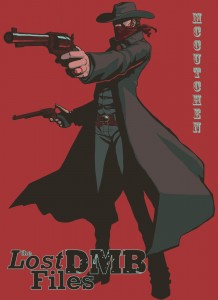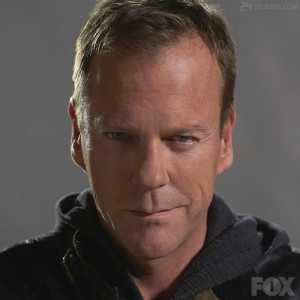 I’ve had several people ask me about the Reefer Ranger. More specifically, why is he a racist, self-righteous SOB? On that note, I’d like to ask all of you kind readers a similar question, but just a bit more generalized.
I’ve had several people ask me about the Reefer Ranger. More specifically, why is he a racist, self-righteous SOB? On that note, I’d like to ask all of you kind readers a similar question, but just a bit more generalized.
Can an antihero be a self-righteous, racist SOB?
Of course, the answer is yes. It is easy to fall in love with more reasonable and cuddly antiheros. You know the types. The Dukes of Hazzard and Malcolm Reynolds. But let’s face it. Those guys are barely antiheroes at all. In the world we live in today, they’re borderline, straight up heroic. An antihero, by definition, is supposed to be:
a main character in a story who lacks conventional heroic qualities such as idealism, courage, and morality.
So let’s take a closer look at the Reefer Ranger as a black hat, antihero. He has courage a plenty. And boy howdy does he have idealism. But his ideals and his morality would be recognized by the vast majority of us (including me) as prejudice, to say the least. He is hypocritical, self-righteous and downright cruel at times. I can hear the violent protests from my home state of Texas as I type. “But he’s a Texas Ranger, for criminy sakes!”
Yes, J.T. McCutchen is a Texas Ranger. It is not widely known, but a good number of Texas Rangers around the turn of the century were horribly violent and racist individuals. Don’t get me wrong. Many of them were indeed heroic figures. But many of them were anything but. Historical accounts reveal examples of Rangers teaming up with wealthy Anglo landowners to dispossess Tejano and Mexican neighbors of their property. After extended periods of violence along the Mexico-Texas border, some Rangers began to see Mexicans as the problem. They dispatched them with extreme prejudice.
Plenty of fiction has been written around the heroic Texas Rangers. But very little has focused on the ones that routinely crossed the line by summarily deporting and killing Mexicans. I chose to latter. The Reefer Ranger is a racist, Mexican-hating, reefer-smoking, reefer-hating, self-righteous, hypocritical officer of the law.
Why isn’t the Reefer Ranger a straight up bad guy, if he is such a jerk?
Another good question. This requires us to inspect the flip side of the coin. We know why the Reefer Ranger isn’t a hero. Why isn’t he a bad guy? The simplest answer is that he still saves the day…sometimes. While misguided, his ideals are unfailing. His morals are ironclad. He does what it takes to protect and preserve his version of Texas  (and later on the country of Texicas). He proves he is cable of growth. He learns and changes. He accepts the truth that not all Mexicans are wicked. While he lacks compassion in many areas. He doesn’t lack dedication to justice. A better modern day comparison for J.T. McCutchen would be Jack Bauer from television’s 24. The guy eventually sells off his soul piecemeal until there is nothing left. But Jack gets crap done. So does J.T. They give up any and all thought of a normal life for the greater good.
(and later on the country of Texicas). He proves he is cable of growth. He learns and changes. He accepts the truth that not all Mexicans are wicked. While he lacks compassion in many areas. He doesn’t lack dedication to justice. A better modern day comparison for J.T. McCutchen would be Jack Bauer from television’s 24. The guy eventually sells off his soul piecemeal until there is nothing left. But Jack gets crap done. So does J.T. They give up any and all thought of a normal life for the greater good.
The problem with characters like this? Everyone around them dies. When they are wrong about something, people die for the wrong reasons. Sometimes people die for no reason at all. But when it comes to the law of averages, antiheroes of this sort are okay with collateral damage. They are cold, calculating SOBs.
While the Reefer Ranger is an extreme example, I think we all know people like this. We all have an element of this sort of cold, calculation in us. When we screw up, our first thought is usually a desire to make it right. We want our overall actions to tip toward the positive. If we destroy a few people along the way, so be it. At least we aren’t all bad, right? But as some of us have discovered, this lifestyle ends with being chased by demons. Every mistake becomes a demon pushing us to do more good in order to tip the scales. So we push faster and harder. As a result we step on others with increasing frequency and the demons start to pile up. It’s a real dilemma. We can feel the Reefer Ranger’s pain. The agony of being driven by our past deeds.
The Reefer Ranger represents a common human reality.
That’s why I’ve written him the way I have. It’s not that I applaud his identity or his choices. But I wrestle with demons too. I do crappy things out of good intentions. Exploring those types of dynamics in fictional characters is what makes stories compelling in the first place. It’s why we read. It’s why I write. Hopefully that answers the question about why I’ve spent so much time focusing on a racist jerk in my writing.